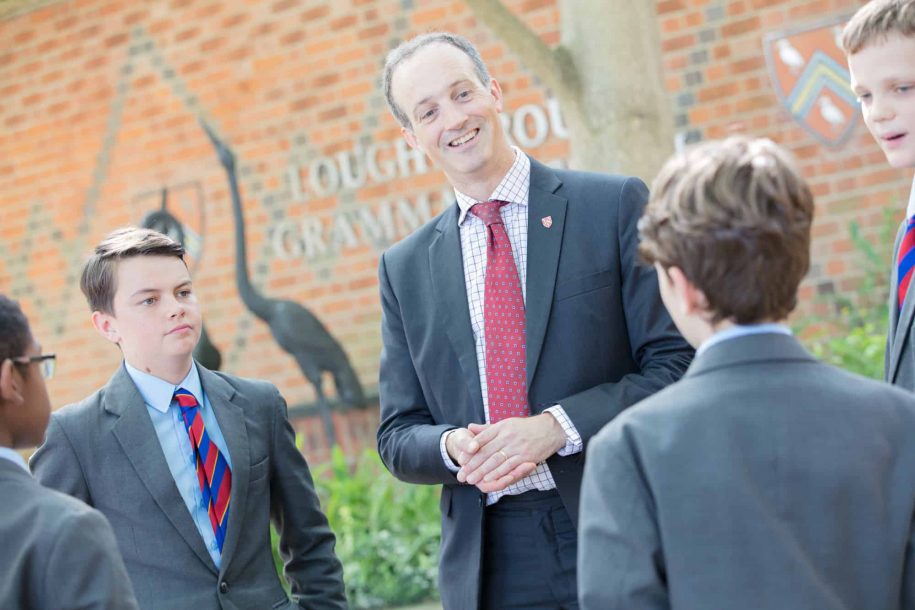GREAT men

GREAT men
I wrote in my blog last January about how confusing it can be for boys to understand what is expected of them as they grow up. The #MeToo movement has, over the last year or so, shone a light on misogynistic behaviour in public life (and beyond), and when one reads about the egregious behaviour of Harvey Weinstein or Kevin Spacey, it is difficult not to feel ‘about time too’. I know, however, that some feel that society is going too far in demonising men and resent the insinuation that all boys are inherently sexist and aggressive. How can we find the ideal balance?
This week, a new Gillette advert has caused a stir, updating the company’s traditional slogan “The best a man can get”. If you haven’t seen it, or heard about the backlash against it, I will summarise. A number of negative behaviours of men towards women are shown with the question ‘is this the best a man can get?’ Then, in contrast, there are scenes with men stepping in to moderate others’ actions: stopping a fight; preventing sexual harassment etc. The negative response towards Gillette has centred on its male audience’s feeling that all men are being tarred with the same brush, as bullies, sexual predators and mansplainers[1]. I must admit to quite liking the advert, as I focused instead on the positive, even inspiring message of its second half. This gives, I think, an insight into our challenge as educators of boys. The concept of ‘toxic masculinity’ is unhelpful and we know from experience that telling boys not to act in a particular way is rarely successful. Instead, we need to reframe the debate to one about ‘positive masculinity’. What should a well-rounded 21st Century man look like?
We know that we are not perfect at the Grammar School, and we regret that a ‘boys will be boys’ mentality has not always been challenged. Yes, our boys are, on the whole, sensitive and thoughtful of the needs of others, but, in a community of 980 boys, prejudices can unconsciously proliferate. On the staff training day just before the start of this term, my colleagues and I listened to the reflections of an LGS alumnus from the class of 2015 about some of the less positive attitudes that he had unwittingly adopted during his school career.
“I loved my time at the Grammar School but was excited to start university to continue making friendships and pursue my chosen subject. I remember turning up to my first lecture with the aim of making my first friend on the course. As I walked out, I began talking to a girl who now happens to be one of my closest friends. She asked what I thought of university so far – an unassuming question to which I replied ‘it’s great but there are a lot of ******s[2] here’. ‘You can’t say that!’ she retorted. ‘Why not?!’ I asked.
It was from this moment onwards that I went on a process of realising not only the subtle homophobia, but also the subtle sexism that had been normalised in my language during my time at school.
I also gradually became aware of some of my own characteristics which had been supressed when I was around my school peers; being sensitive, being gentle, and showing affection to both female AND male friends. In short, alongside the positives of academic confidence and achievement, amazing opportunities and life-long friendships, my school experience had unwittingly developed a ‘lad culture’ in me.
The subtle homophobic and sexist comments engrained into my language at school, ensured that I, and those around me, felt that particular hobbies, interests and characteristics were off limits because of our sex. In using repeated phrases like ‘don’t be a girl’ or ‘stop being gay’, my peers and I were immediately undervaluing and discriminating against women and the LGBTQ community. Similarly, by making comments like ‘man up’, we were essentially telling boys not to show their feelings and not to ask for help when they were feeling down.”
These reflections from a very recent former student had quite an effect on the staff. They help to explain our new ‘GREAT men’ initiative that we are starting this term, and about which you will hear much more. This is an acronym highlighting the areas on which we will focus with boys in their PSHE lessons, assemblies and beyond:
Growth mind-set Resilience Emotional Awareness Talk
I hope that much of this speaks for itself, but we will be writing to all parents more formally with further detail of our aims as the term progresses. We would like to work with you in promoting conversations at home and at school about the positive roles boys should develop as they navigate through adolescent life and beyond. Development of the characteristics above will help them to become GREAT men who fulfil their potential as partners, fathers, colleagues and successful and valued members of their communities.
[1] Mansplain (definition)
(of a man) explain (something) to someone, typically a woman, in a manner regarded as condescending or patronizing.
[2] Homophobic slur removed
